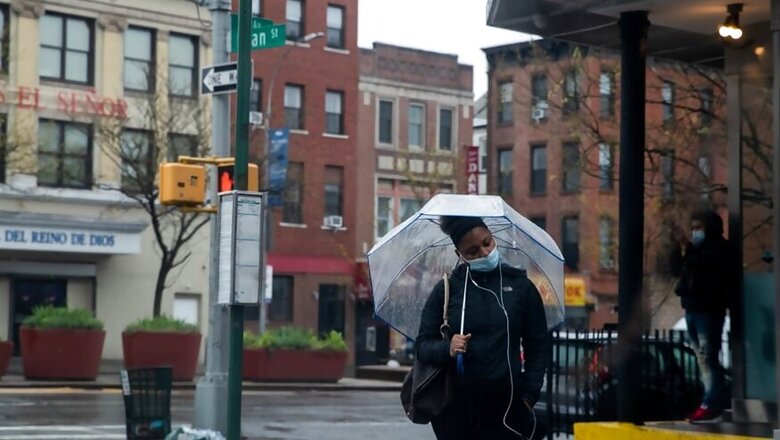
views
As the novel coronavirus swept through communities around the world, preying disproportionately on the poor and the vulnerable, one disadvantaged group has demonstrated a remarkable resistance.
Women, whether from China, Italy or the United States, have been less likely to become acutely ill — and far more likely to survive.
Which has made doctors wonder: Could hormones produced in greater quantities by women be at work?
Now scientists on two coasts, acting quickly on their hunches in an effort to save men’s lives, are testing the hypothesis. The two clinical trials will each dose men with the sex hormones for limited durations.
Last week, doctors on New York’s Long Island started treating COVID-19 patients with estrogen in an effort to increase their immune systems, and next week physicians in Los Angeles will start treating male patients with another hormone that is predominantly found in women, progesterone, which has anti-inflammatory properties and can potentially prevent harmful overreactions of the immune system.
“There’s a striking difference between the number of men and women in the intensive care unit, and men are clearly doing worse,” said Dr. Sara Ghandehari, a pulmonologist and intensive care physician at Cedars-Sinai in Los Angeles who is the principal investigator for the progesterone study.
She said 75% of the hospital’s intensive care patients and those on ventilators are men.
And pregnant women, who are usually immunocompromised but have high levels of estrogen and progesterone, tend to have mild courses of the disease.
“So something about being a woman is protective, and something about pregnancy is protective, and that makes us think about hormones,” Ghandehari said.
Some experts who study sex differences in immunity, however, warned that hormones may fail to be the magic bullet that some are hoping for; even elderly women with COVID-19 are outliving their male peers, and there is a drastic reduction in levels of hormones for women after menopause.
The genesis of the estrogen trial at the Renaissance School of Medicine at Stony Brook University on Long Island stemmed from a similar observation, said Dr. Sharon Nachman, the trial’s principal investigator, who credited a Stony Brook surgeon, Dr. Anthony Gasparis, with the idea.
The trial enrolled its first patient this past week, and preliminary results could be available in a few months, she said.
“It’s totally out of the box, which is how good ideas often start,” said Nachman, associate dean for research at the Renaissance School, which is part of the State University of New York.
The gender gap in coronavirus survival became apparent early in the pandemic. Reports from China indicated men were dying at higher rates, but the disparity was attributed to higher smoking rates.
But the outcomes were consistent in other countries, with men in Italy dying at higher rates than women and men in New York City dying at nearly double the rate of women.
Scientists who study sex differences say that both biological differences in immunity, as well as behavioral factors, are at play. Men smoke more almost everywhere, they say; men also wash their hands less. While women appear to have more robust immune systems, these experts say, the causes are complex and multifactorial, and hormones are only part of the picture.
If such sex hormones were the primary protective factor for women, then elderly women with COVID-19 would fare as poorly as elderly men, because women’s reproductive hormones plummet after menopause, said Sabra Klein, a scientist who studies sex differences in viral infections and vaccination responses at the Johns Hopkins Bloomberg School of Public Health.
But that’s not the case, she said.
“We see this bias across the life course,” Klein said. “Older men are still disproportionately affected, and that suggests to me it’s got to be something genetic, or something else, that’s not just hormonal.”
“Estrogen has immune modulatory properties — don’t get me wrong,” she continued. “You could get a beneficial effect in both men and women. But if women are better at recovery at 93 years old, I doubt it’s hormones.”
Roni Caryn Rabin c.2020 The New York Times Company




















Comments
0 comment